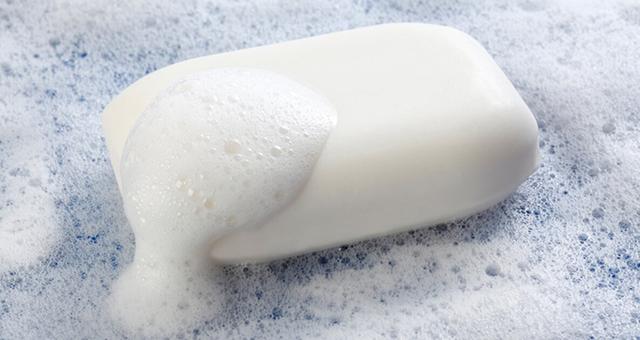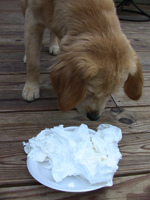Matter can be a solid, a liquid, or a gas. Matter changes when it is heated or cooled. When a substance is heated its molecules move faster. As the water in a pot on the stove gets hotter, its molecules begin to move until the water is boiling. When gases are heated the same thing happens. You can do a dramatic experiment with a bar of ivory soap to observe how heat can change matter.
What You Need
- Bar of Soap that Floats (Ivory Soap does!)
- Bowl of Water
- Paper Plate
- Microwave
Instructions
Break or cut the bar of soap into four pieces. Put the pieces on a paper plate and microwave for 1 minute. Watch the ivory soap through the microwave window.
As the soap molecules begin to heat up, the air bubbles move quickly away from each other, or expand. This is called If you roast a marshmallow, the same thing happens.
Science Experiment Idea
Choose different kinds of soap to see what will happen when they are heated up for one minute in the microwave. Heat each bar of soap up on the same kind of plate. Heat each bar for the same amount of time. The variable in this experiment is the soap, everything else has to be the same. Do the bars of soap each react the same way when they are heated up in the microwave? Why do you think so? For one soap, choose a brand that has air bubbles whipped into it, like Ivory soap. To test a bar of soap to see if it has air bubbles in it, float it in a bowl of water. A bar of soap will float if it has air bubble whipped into it.
Websites, Activities & Printables
- Encyclopedia Britannica Kids: Heated Air Expands
- BBC Bitesize: Solids, Liquids and Gases
- Chem4Kids: Looking for a Gas
- Steve Spangler Science: Balloon Expansion
- Curiodyssey: How to Blow Up a Balloon with Hot Air
- Kids Corner Science: Expanding Marshmallows

You can also ask a math and science expert for homework help by calling the Ask Rose Homework Hotline. They provide FREE math and science homework help to Indiana students in grades 6-12.
e-Books and Audiobooks
Use your indyPL Library Card to check out books about Science Experiments at any of our locations, or check out science experiment e-books and audiobooks from OverDrive Kids right to your device! If you have never used OverDrive before, you can learn how to use it for both e-books and audiobooks.
Need more help? Ask a Library staff member at any of our locations or call, text or email Ask-a-Librarian. Additionally, the Tinker Station helpline at (317) 275-4500 is also available. It is staffed by device experts who can answer questions about how to read, watch and listen on a PC, tablet or phone.
Solids, Liquids and Gases – When Matter Feels the Heat!
What turns ice cubes into water? What makes the steam rise from a pot of boiling water? What exactly IS matter – and how can something be all three – a solid, liquid, or gas? Here some experiments to try at home to answer these questions and the science that explains what you see.

